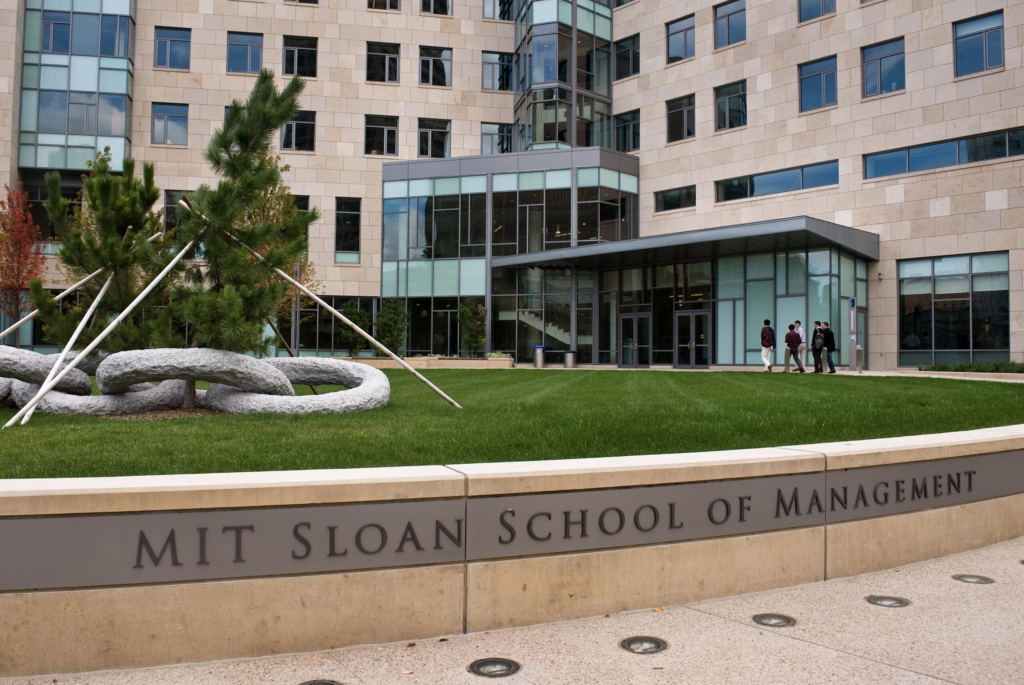So, you’re here to find out about the best GMAT colleges in world, right? And why wouldn’t you be? An MBA from a top institution isn’t just a degree—it’s a career game-changer. These schools are known for their exceptional programs, world-class faculty, and impressive alumni networks. They offer a gateway to opportunities that most professionals only dream of.
But let’s address your real questions upfront:
- How do you choose the right college?
- What are their fees and GMAT requirements?
- Is GMAT even mandatory anymore?
This guide has you covered. From tuition fees and average GMAT scores to work experience and alternative admissions pathways, we’ll dive into everything you need to know. And if you’ve been wondering about GMAT vs GRE, don’t worry—we’ll settle that debate too.
By the end, you’ll have a clear roadmap to the top GMAT-accepting colleges worldwide and actionable insights to guide your application journey.
Understanding the Importance of GMAT for Top Colleges
The Graduate Management Admission Test (GMAT) isn’t just a test—it’s a gold standard for business school admissions. Wondering why? Let’s break it down.
- Global Benchmarking: GMAT evaluates your quantitative, verbal, and analytical skills, giving schools a standardized measure to compare applicants from diverse backgrounds.
- Predictor of Success: Studies show that GMAT scores correlate with academic performance during an MBA. That’s why leading business schools like Harvard, INSEAD, and London Business School use it as a critical admission criterion.
- Competitive Edge: Many top GMAT-accepting colleges worldwide report average GMAT scores above 700. A strong score doesn’t just open doors; it helps you stand out in a sea of applications.
Quick Fact Box:
| Metric | Top Colleges Benchmark |
|---|---|
| Average GMAT Score | 710–740 |
| Typical Work Experience (Years) | 4–6 |
| GMAT Weightage in Admissions | 20–30% |
What’s the takeaway? For most elite MBA programs, the GMAT isn’t optional—it’s a must. However, some schools now offer alternatives, which we’ll explore later.
Top 10 Best GMAT Colleges in World
Harvard Business School (HBS)
Harvard Business School is the epitome of business education. Known for pioneering the case study method, HBS provides a robust learning environment where students tackle real-world challenges. The institution boasts a strong focus on leadership and entrepreneurship, supported by a vast network of over 85,000 alumni. HBS graduates often land leadership roles at global organizations or start their own ventures, underscoring the program’s transformative impact.

| Metric | Details |
|---|---|
| Acceptance Rate | ~11% |
| Global Ranking | #1 (Financial Times, 2023) |
| Tuition Fees | ~$75,000/year |
| Additional Expenses | ~$30,000/year (housing, food, insurance, books, etc.) |
| Average GMAT Score | 730 |
| Post-MBA Salary | ~$150,000/year |
| Notable Alumni | Michael Bloomberg (Founder, Bloomberg L.P.), Sheryl Sandberg (Former COO, Meta) |
Stanford Graduate School of Business (GSB)
Situated in the heart of Silicon Valley, Stanford GSB is synonymous with innovation and entrepreneurship. The school’s emphasis on personal development and leadership prepares students to drive change in any industry. Its proximity to global tech giants offers unmatched networking opportunities, while its alumni include industry disruptors and Nobel laureates.

| Metric | Details |
|---|---|
| Acceptance Rate | ~7% |
| Global Ranking | #2 (Financial Times, 2023) |
| Tuition Fees | ~$74,000/year |
| Additional Expenses | ~$31,000/year |
| Average GMAT Score | 733 |
| Post-MBA Salary | ~$155,000/year |
| Notable Alumni | Phil Knight (Co-founder, Nike), Mary Barra (CEO, General Motors) |
Wharton School (University of Pennsylvania)
Wharton is a powerhouse for finance and analytics. With a history spanning over a century, it’s a breeding ground for top leaders in business and government. Its diverse student body, comprehensive curriculum, and emphasis on experiential learning make it a favorite for aspiring global leaders.

| Metric | Details |
|---|---|
| Acceptance Rate | ~20% |
| Global Ranking | #3 (Financial Times, 2023) |
| Tuition Fees | ~$80,000/year |
| Additional Expenses | ~$28,000/year |
| Average GMAT Score | 730 |
| Post-MBA Salary | ~$150,000/year |
| Notable Alumni | Elon Musk (CEO, Tesla and SpaceX), Sundar Pichai (CEO, Alphabet) |
INSEAD
Often called “The Business School for the World,” INSEAD offers a globally immersive MBA experience. With campuses in France, Singapore, and Abu Dhabi, it attracts a highly international cohort. Its condensed one-year program focuses on building global leaders who excel across cultures and industries.

| Metric | Details |
|---|---|
| Acceptance Rate | ~30% |
| Global Ranking | #4 (Financial Times, 2023) |
| Tuition Fees | ~$100,000 total |
| Additional Expenses | ~$25,000/year |
| Average GMAT Score | 710 |
| Post-MBA Salary | ~$130,000/year |
| Notable Alumni | António Horta-Osório (Former CEO, Lloyds Banking Group), Najib Razak (Former PM, Malaysia) |
London Business School (LBS)
Situated in the heart of London, LBS offers unparalleled access to Europe’s financial and corporate hubs. Its focus on leadership, innovation, and global business ensures students graduate with a well-rounded skill set. The school’s diverse network spans industries, making it a top choice for ambitious professionals.

| Metric | Details |
|---|---|
| Acceptance Rate | ~25% |
| Global Ranking | #5 (Financial Times, 2023) |
| Tuition Fees | ~$100,000 total |
| Additional Expenses | ~$35,000/year |
| Average GMAT Score | 708 |
| Post-MBA Salary | ~$140,000/year |
| Notable Alumni | Cyrus Mistry (Former Chairman, Tata Group), Tony Wheeler (Founder, Lonely Planet) |
Booth School of Business (University of Chicago)
Booth is renowned for its analytical approach and flexible curriculum, allowing students to tailor their education to their interests. With a strong emphasis on evidence-based decision-making, Booth produces leaders equipped to tackle complex global challenges. Its location in Chicago provides access to a vibrant business community.

| Metric | Details |
|---|---|
| Acceptance Rate | ~25% |
| Global Ranking | #6 (Financial Times, 2023) |
| Tuition Fees | ~$73,000/year |
| Additional Expenses | ~$25,000/year |
| Average GMAT Score | 730 |
| Post-MBA Salary | ~$145,000/year |
| Notable Alumni | Satya Nadella (CEO, Microsoft), Jon Winkelried (Co-CEO, TPG Capital) |
Kellogg School of Management (Northwestern University)
Kellogg is celebrated for its emphasis on teamwork and leadership development. Its robust curriculum includes experiential learning opportunities and international immersion programs. Known for producing collaborative and strategic thinkers, Kellogg’s alumni lead across various industries worldwide.

| Metric | Details |
|---|---|
| Acceptance Rate | ~20% |
| Global Ranking | #7 (Financial Times, 2023) |
| Tuition Fees | ~$74,000/year |
| Additional Expenses | ~$28,000/year |
| Average GMAT Score | 727 |
| Post-MBA Salary | ~$142,000/year |
| Notable Alumni | Ajay Banga (President, World Bank), Rob Portman (Former U.S. Senator) |
Columbia Business School (CBS)
Located in New York City, CBS offers a dynamic MBA program with close ties to the finance and consulting industries. Its rigorous curriculum is complemented by opportunities for networking and internships in one of the world’s most influential cities. CBS fosters entrepreneurial thinking and prepares students to excel in diverse industries.

| Metric | Details |
|---|---|
| Acceptance Rate | ~16% |
| Global Ranking | #8 (Financial Times, 2023) |
| Tuition Fees | ~$77,000/year |
| Additional Expenses | ~$30,000/year |
| Average GMAT Score | 726 |
| Post-MBA Salary | ~$147,000/year |
| Notable Alumni | Warren Buffett (CEO, Berkshire Hathaway), Henry Kravis (Co-founder, KKR) |
MIT Sloan School of Management
MIT Sloan emphasizes innovation, problem-solving, and data-driven decision-making. With close ties to the tech industry, Sloan attracts students aiming to lead in technology, entrepreneurship, and consulting. The program’s entrepreneurial ecosystem encourages students to launch impactful ventures.

| Metric | Details |
|---|---|
| Acceptance Rate | ~14% |
| Global Ranking | #9 (Financial Times, 2023) |
| Tuition Fees | ~$78,000/year |
| Additional Expenses | ~$29,000/year |
| Average GMAT Score | 720 |
| Post-MBA Salary | ~$150,000/year |
| Notable Alumni | Kofi Annan (Former UN Secretary-General), Bill Ford (Executive Chair, Ford Motor Company) |
HEC Paris
HEC Paris is one of Europe’s leading business schools, known for its rigorous academic programs and entrepreneurial focus. With a diverse student body and strong industry connections, HEC Paris provides an international perspective and access to top recruiters in Europe and beyond. Its location near Paris offers a cultural and professional advantage.

| Metric | Details |
|---|---|
| Acceptance Rate | ~18% |
| Global Ranking | #10 (Financial Times, 2023) |
| Tuition Fees | ~$85,000 total |
| Additional Expenses | ~$20,000/year |
| Average GMAT Score | 710 |
| Post-MBA Salary | ~$135,000/year |
| Notable Alumni | François Hollande (Former President of France), Jean-Paul Agon (Chairman, L’Oréal) |
Insights for Your Decision
Each of these colleges offers unique advantages, from innovative teaching methods and global networks to access to top employers. However, the right choice depends on your career goals, budget, and geographic preferences. Remember to research thoroughly, and don’t hesitate to seek expert guidance to strengthen your applications.
Why Do Top Colleges Want a GMAT?
If you’ve been wondering why the GMAT holds such significance in the admissions process at top colleges, the answer lies in its multifaceted utility. It’s more than just a number—it’s a measure of readiness, capability, and potential.
1. Assessing Academic Aptitude
The GMAT evaluates critical skills such as quantitative reasoning, analytical writing, and verbal communication. These skills are directly applicable to the demanding coursework in MBA programs. By excelling on the GMAT, candidates demonstrate their ability to handle rigorous academic challenges.
2. Standardized Comparison Across Diverse Profiles
Applicants come from varying educational and professional backgrounds. For instance, an engineer from India might be competing with a literature graduate from the U.S. The GMAT acts as a universal metric, enabling admissions committees to make apples-to-apples comparisons.
3. Maintaining High Academic Standards
Top business schools use the GMAT as a benchmark to uphold their academic excellence. High average GMAT scores contribute to a school’s reputation and attract competitive candidates.
4. Predicting Post-MBA Success
Research indicates that GMAT performance correlates with success not only during an MBA but also in post-MBA careers. Employers often value a strong GMAT score as a sign of problem-solving and analytical abilities.
How Much Weightage Is Given to the GMAT by Top Colleges?

While GMAT scores are important, they’re not the only factor in the admissions process. Top business schools adopt a holistic approach, evaluating various components of your profile.
Average GMAT Weightage:
- 20–30%: For most top programs, GMAT scores account for about 20–30% of the overall admissions decision. This means that while a high score strengthens your application, it’s not the sole determinant.
- Complementary Factors: Work experience, essays, recommendations, and interviews carry significant weight as well. Strong performance in these areas can offset a slightly lower GMAT score.
How Schools Use GMAT Scores:
- Screening Tool: Many schools have a minimum GMAT score requirement to filter initial applications.
- Differentiator: Among applicants with similar profiles, a high GMAT score can tip the scales in your favor.
- Scholarships: A stellar GMAT score may qualify you for merit-based scholarships, reducing the financial burden of an MBA.
Visual Aid Opportunity:
| Factor | Weightage Range |
|---|---|
| GMAT Score | 20–30% |
| Work Experience | 25–35% |
| Essays & Recommendations | 20–25% |
| Interview Performance | 15–20% |
What If You Don’t Have a GMAT?
Not having a GMAT score can feel like a major hurdle when aiming for top business schools. But here’s the good news: many colleges now offer alternative pathways for admission or waive the GMAT requirement altogether in specific cases.
When and Where GMAT Waivers Are Possible
- Strong Academic Backgrounds: Schools like Imperial College Business School and Warwick Business School may waive GMAT requirements for candidates with exceptional academic records, especially in quantitative disciplines.
- Extensive Work Experience: Programs like UCLA Anderson and Rotterdam School of Management sometimes prioritize significant managerial experience over standardized test scores.
- Pandemic Adjustments: During COVID-19, many schools, including NYU Stern, introduced temporary GMAT waivers. Some of these policies have remained post-pandemic.
Alternatives to the GMAT
- GRE: Nearly all GMAT-accepting colleges also accept GRE scores as an alternative.
- School-Specific Tests: Institutions like ESADE and ESSEC offer their own entrance tests as substitutes.
- Exceptional Professional Achievements: Candidates with impressive professional accomplishments might bypass the GMAT altogether.
| College Offering Waivers | Reason for Waiver | Other Requirements |
|---|---|---|
| Imperial College Business School | Strong quantitative background | Academic transcripts, work experience |
| Warwick Business School | High GPA or professional experience | Statement of purpose, recommendations |
| ESADE Business School | School-specific admissions test | Interviews, essays |
| UCLA Anderson | Leadership experience during specific cycles | Professional achievements |
Key Takeaway
While GMAT is a standard requirement at many schools, a growing number of institutions are flexible. If you’re aiming to skip the GMAT, focus on bolstering your profile through strong essays, recommendations, and work achievements.
GMAT vs GRE: Is GRE Also Accepted?

If you’re weighing whether to take the GMAT or GRE, here’s what you need to know. Both tests are widely accepted by top MBA programs, but they cater to slightly different strengths and career goals.
Key Differences Between GMAT and GRE
| Factor | GMAT | GRE |
|---|---|---|
| Purpose | Tailored for MBA programs | Broader use across graduate programs |
| Structure | Focus on quantitative and verbal reasoning | Includes vocabulary-heavy verbal sections |
| Scoring Range | 200–800 | 260–340 |
| Flexibility | Designed for business schools | Suitable for diverse fields beyond business |
| Preference by Schools | Widely preferred by MBA admissions teams | Accepted equally at most schools |
Why Choose GMAT?
- Designed specifically for business schools, GMAT aligns better with MBA program expectations.
- It includes an Integrated Reasoning section that showcases data interpretation skills—critical for business leaders.
When GRE Might Be a Better Fit
- If you’re considering non-MBA programs alongside business school, GRE offers broader applicability.
- GRE’s verbal sections may appeal to applicants with a strong vocabulary or liberal arts background.
Does Having a High GMAT Score Guarantee Admission?

A stellar GMAT score can open doors, but it doesn’t guarantee you’ll walk through them. Top colleges take a holistic approach to admissions, meaning that while a strong GMAT score is critical, other elements of your profile matter just as much—or even more.
The Role of a High GMAT Score
- Strengthens Your Academic Profile: A high score demonstrates your ability to tackle the rigorous coursework of an MBA program.
- Signals Commitment: Excelling on the GMAT shows that you’ve invested time and effort into preparing for business school.
What Else Matters?
Even if you ace the GMAT, here’s what top colleges look for beyond test scores:
- Work Experience: Leadership roles, measurable impact, and a clear progression in your career are essential.
- Essays: Your essays should tell a compelling story about your goals, motivations, and how you’ll contribute to the MBA community.
- Recommendations: Strong letters from professional mentors or managers can validate your achievements and character.
- Interviews: Admissions committees often evaluate how well you articulate your goals and fit into their program during interviews.
Real-Life Example:
Case Study: A candidate with a 750 GMAT score applied to Harvard and Stanford but was rejected due to lack of leadership experience and poorly written essays. Meanwhile, another applicant with a 710 score secured admission by showcasing strong leadership and a clear post-MBA plan.
FAQs
1. Which are the best GMAT colleges in world with relatively affordable fees?
Some top-ranked yet affordable programs include HEC Paris, ESADE, and Rotterdam School of Management. These schools often have lower tuition compared to U.S. counterparts and offer scholarships.
2. Do I need work experience for top 10 best GMAT colleges in world?
Yes, most top schools prefer applicants with at least 3–5 years of work experience. Some programs, like INSEAD, emphasize international exposure as well.
3. Is a GRE score acceptable in place of GMAT at most global MBA programs?
Absolutely. Most top MBA programs accept GRE scores, with no preference for either test. Choose the one that aligns with your strengths.
4. Can a strong undergraduate GPA compensate for a lower GMAT score?
A strong GPA helps but rarely compensates for a significantly lower GMAT score at top schools. However, excellent work experience or leadership roles can offset this.
5. Where can I find reliable data on GMAT averages and fees for these colleges?
Check official school websites, rankings like QS or Financial Times, and trusted resources like mba.com.
Conclusion: Charting Your Path to Success
Pursuing an MBA at one of the best GMAT colleges in world is a transformative journey. From choosing the right school to acing the GMAT and crafting a compelling application, every step matters.
Remember:
- Research schools that align with your goals and budget.
- Focus on building a holistic profile, not just achieving a high GMAT score.
- Stay proactive—reach out to alumni, attend webinars, and seek guidance to fine-tune your application.




